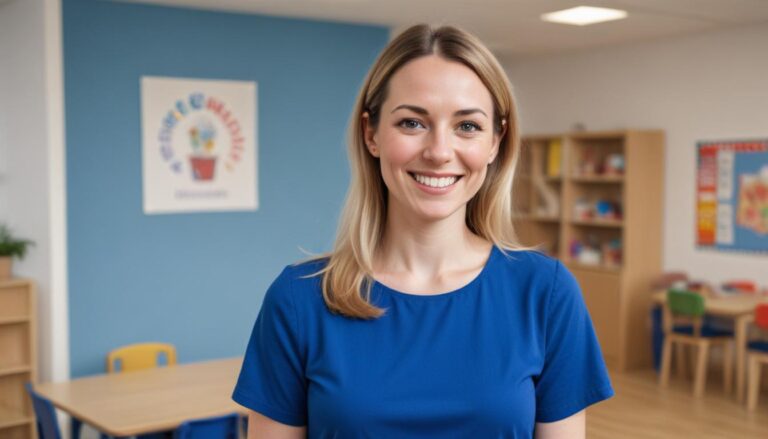
This guide will help you answer 2.2. Identify the range of services that may be required to support positive mental health in children and young people.
Children and young people’s mental health is affected by many factors. Support from various services can make a big difference. In this guide, we’ll look at different services available. These can offer help to children and young people at different stages. Proper support can aid in achieving positive mental health.
Educational Services
Schools and Teachers
Schools play an important role in mental health. Teachers spend a lot of time with children and act as first responders to any concerns. They are trained to spot signs of mental health issues. Schools can provide:
- Pastoral care systems
- Counselling services
- Mental health education as part of the curriculum
Having a mental health lead in schools is increasingly common. This role ensures there’s a point person for any mental health queries.
Educational Psychologists
Educational psychologists support children with mental health needs that affect learning. They use assessments to understand cognitive and emotional difficulties. They can suggest interventions to support the child’s needs within an educational setting.
Healthcare Services
Child and Adolescent Mental Health Services (CAMHS)
CAMHS are specialised NHS services. They cater to children and young people with severe mental health difficulties. CAMHS teams include:
- Psychiatrists
- Psychologists
- Social workers
- Nurses
They offer individualised assessments and talk therapies. These may include Cognitive Behavioural Therapy (CBT) or family therapy.
General Practitioners (GPs)
GPs often are the first contact point in the healthcare system. They can do initial assessments and refer children to appropriate mental health services. GPs also provide treatment and advice for mild to moderate mental health issues.
Health Visitors and School Nurses
Health visitors and school nurses support children in their early years. They offer health checks and advice on behavioural problems or developmental concerns. School nurses also work with older children and provide health education.
Social Services
Social Workers
Social workers help children in difficult living situations. They provide family support in cases of neglect or abuse. They coordinate with other services to provide comprehensive care and ensure the safety and well-being of children.
Family Support Workers
Family support workers offer practical help and advice. They assist families under pressure which, in turn, supports children’s mental health. They run parenting courses and help with behaviour management strategies.
Voluntary and Community Sector
Charities and Helplines
Numerous charities focus on child and young people’s mental health. Organisations like Childline and YoungMinds provide:
- Free, confidential support services
- Helplines and online chat options
- Resources for both children and their families
These services particularly help those who might not access traditional services due to barriers such as stigma or location.
Youth Clubs and Support Groups
Youth clubs provide safe spaces for children to engage in activities and socialise. They are vital in creating a sense of community. Support groups within these clubs offer peer support, which is often invaluable for children dealing with similar issues.
Early Intervention Services
Early intervention focuses on identifying issues as soon as they arise. This approach prevents the escalation of mental health problems. These services work with:
- Families
- Schools
- Health care professionals
They offer programmes to support early development and mental health, often benefiting those in high-risk groups.
Online Services
Digital Mental Health Resources
The internet hosts several resources that provide accessible mental health support. These include:
- Websites offering information and self-help resources
- Apps designed to help manage mental health
Online platforms are particularly popular with young people who are comfortable in the digital sphere and seek instant access to information.
Online Counselling
Many organisations offer online counselling services. This service can be over the phone, video call, or web chat. It provides flexibility and anonymity, encouraging those who may hesitate to seek face-to-face therapy.
Specialist Support Services
Speech and Language Therapists
Some children with mental health issues also face communication challenges. Speech and language therapists help improve interaction skills, enhancing social development, critical for emotional and mental well-being.
Occupational Therapists
Occupational therapists work with children struggling with everyday activities due to mental health issues. They help children develop skills necessary for play, school, and self-care, all of which contribute positively to mental health outcomes.
Crisis Services
Emergency Services
In immediate, severe cases, emergency services provide urgent help. This might include hospitalisation or intensive management. Fast response in crises can save lives and significantly reduce long-term harm.
Helpline Services and Crisis Intervention
Helplines run by organisations like Samaritans offer immediate response for those in distress. These services are available 24/7 and provide a listening ear and guidance during critical times.
Parental Education and Involvement
Educating parents on mental health is crucial. Services often run workshops and provide resources that empower parents. Understanding mental health helps parents provide better support and reduces stigmaprovides crucial support in the home environment. Parents who are informed are more likely to seek help early.
Conclusion
Supporting positive mental health for children and young people requires collaboration among varied services. Schools, healthcare, social services, and the voluntary sector each offer unique and essential support. By engaging these services, children and young people receive the help they need to thrive mentally and emotionally. Providing comprehensive support ensures their current well-being and lays foundations for future resilience and success.
Subscribe to Newsletter
Get the latest news and updates from Care Learning and be first to know about our free courses when they launch.






